When it comes to producing precision metal parts, Aluminum Die Casting and Zinc Die Casting are two of the most trusted methods used across various industries. Both processes involve injecting molten metal into a steel mold or die under high pressure to create intricate and dimensionally accurate components. However, the performance, properties, and cost-efficiency of aluminum and zinc differ significantly.
Understanding the differences between aluminum and zinc die casting is critical when choosing the right material and process for your product design and industrial needs. In this article, we break down the key differences to help you make an informed decision.
Aluminum Die Casting uses lightweight aluminum alloys that are ideal for high-strength applications where weight reduction is essential. These alloys are commonly used in the automotive, aerospace, and electronics industries due to their high corrosion resistance and excellent thermal conductivity.
Zinc Die Casting, on the other hand, utilizes zinc alloys such as Zamak 3 and Zamak 5. Zinc is known for its superior dimensional accuracy, toughness, and the ability to create highly detailed components. Zinc Die Casting Manufacturers in India often prefer zinc for smaller, more intricate parts used in electronics, home hardware, and industrial components.
One of the most noticeable differences between these two materials is their weight.
In terms of strength, both materials perform well, but in different ways. Aluminum offers excellent tensile strength, especially at higher temperatures. Zinc offers high impact strength and is more malleable, which helps in complex molding and reduces the risk of cracking during casting.
Zinc Die Casting excels in producing parts with tight tolerances, thin walls, and fine details. The lower melting point of zinc (~420°C) allows for better flow into intricate mold designs, resulting in less need for secondary machining.
Aluminum Die Casting also produces precise components, but it may require additional post-processing to achieve the same level of detail and surface finish as zinc. This makes zinc more suitable for components where finish quality and dimensional precision are top priorities.
Aluminum is naturally resistant to corrosion due to the formation of an oxide layer on its surface. This makes Aluminum Die Casting ideal for outdoor or marine applications, as well as for parts that need to withstand high-temperature environments.
Zinc also provides good corrosion resistance, especially when coated or plated. However, zinc has a lower melting point, which limits its application in high-heat conditions compared to aluminum.
Cost is often a determining factor in material choice. While Aluminum Die Casting offers performance advantages in certain applications, it typically requires higher energy consumption and shorter tool life due to the elevated temperatures used in the process.
In contrast, Zinc Die Casting offers longer die life, faster cycle times, and lower overall production costs, making it a preferred option for high-volume manufacturing.
Aluminum Die Casting is commonly used for:
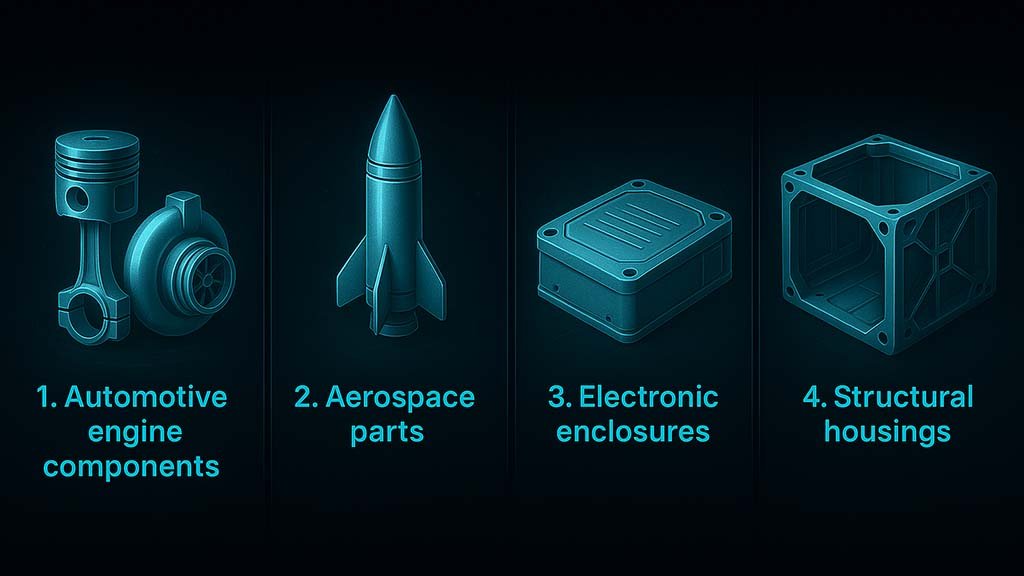
Zinc Die Casting is ideal for:
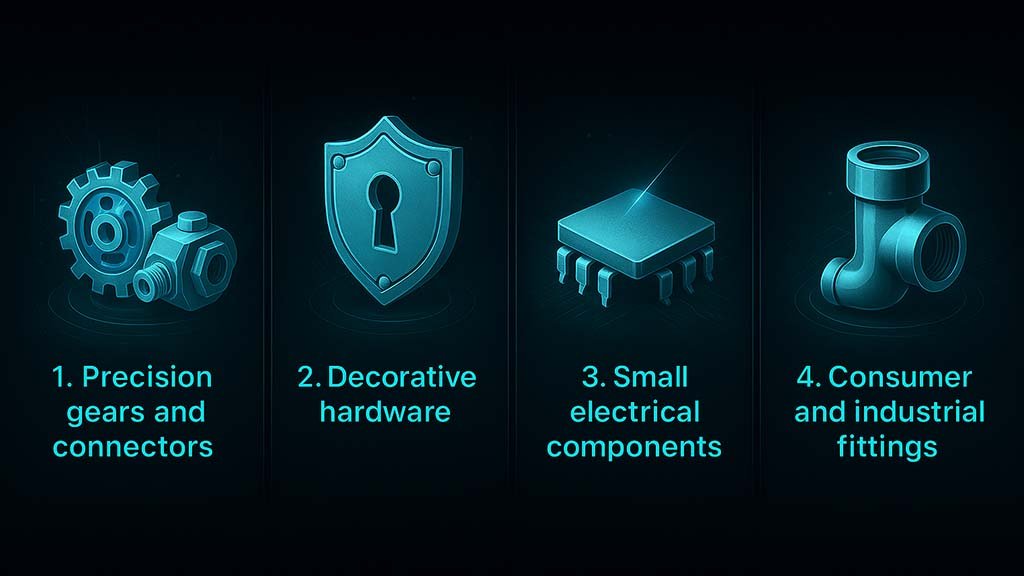
Both Aluminum Die Casting and Zinc Die Casting offer unique advantages that suit different industrial needs. When evaluating which to choose, consider factors such as part size, mechanical requirements, production volume, and budget.
For intricate, small, and cost-efficient parts, Zinc Die Casting is the way to go—especially when working with leading Zinc Die Casting Manufacturers in India. For lightweight, high-strength, and heat-resistant components, Aluminum Die Casting is the superior option.
Looking for a trusted partner for your casting needs? OME Verma Industries, a Leading Aluminium Die Casting Manufacturer in India, delivers high-quality solutions with precision engineering, advanced technology, and industry-proven expertise.
In the world of metal casting, Aluminum Die Casting and Zinc Die Casting stand out as two of the most widely used methods for producing precision parts with complex geometries. Each method has its unique advantages and limitations, making it crucial for manufacturers and designers to understand the core differences when selecting the right material and process for their application.
This article explores the pros, cons, and key differences between aluminum and zinc die casting, helping you make an informed choice for your manufacturing needs.
Aluminum Die Casting is ideal for applications requiring lightweight and high-performance components. Aluminum alloys such as A380 are frequently used for their excellent strength-to-weight ratio.


Zinc Die Casting is preferred for components that require high precision, intricate detail, and strength at thinner walls. Zinc alloys like Zamak 3 and Zamak 5 are commonly used in consumer electronics, automotive interiors, and industrial equipment.



The selection between Zinc Die Casting and Aluminum Die Casting largely depends on the specific application requirements:
For high-quality Zinc Die Casting and Aluminum Die Casting solutions, partnering with an experienced manufacturer ensures the best results. OME Verma Industries, a leading Aluminium Die Casting Manufacturer in India, delivers precision-engineered parts tailored to your needs with modern technology and quality assurance at every stage.
Zinc die casting is a widely adopted manufacturing process that plays a crucial role in producing high-quality, durable metal parts across numerous industries. Known for its precision, strength, and efficiency, this method is extensively used in automotive, electronics, consumer appliances, and more. With growing demand for complex components and fast production cycles, Zinc Die Casting Manufacturers in India are increasingly delivering world-class solutions that meet global standards. In this article, we’ll explore how zinc die casting works and its vital contribution to modern industry.
Zinc die casting is a metal casting process that involves forcing molten zinc alloys into high-precision steel molds, known as dies, under high pressure. These dies are designed to produce parts with complex geometries and tight tolerances. Once the metal cools and solidifies, the mold opens and ejects the finished part, which often requires minimal machining or finishing.
Zinc alloys like Zamak 3, Zamak 5, and ZA-8 are preferred for their excellent fluidity, corrosion resistance, and mechanical strength—qualities that make them ideal for high-performance components.
Understanding how zinc die casting works involves examining a series of carefully controlled steps. Here’s a breakdown of the process:
The die (mold) is first cleaned, preheated, and lubricated. Preheating ensures even metal flow and reduces thermal shock, while lubrication helps with part ejection and increases mold life.
Molten zinc alloy, heated to a temperature around 400–450°C, is injected into the mold cavity at high pressure (usually between 1,500 and 30,000 psi). This pressure forces the metal into every detail of the mold, filling intricate designs and thin walls with precision.
Once the cavity is filled, the molten zinc quickly cools and solidifies into the desired shape. Zinc’s fast cooling rate contributes to shorter cycle times, which boosts manufacturing efficiency.
After solidification, the die opens, and ejector pins push the part out of the mold. The cycle then repeats for the next part, making zinc die casting ideal for high-volume production.
Excess material, known as flash, is trimmed off, and parts may undergo surface treatments like plating, painting, or powder coating to enhance their appearance and performance.

Zinc die casting offers a powerful combination of qualities that make it indispensable in modern manufacturing. Here’s why many industries choose it:
Zinc die casting supports intricate detailing, thin walls, and tight tolerances—perfect for electronic connectors, mechanical gears, and small housings.
Zinc alloys are strong and impact-resistant, making them suitable for structural and load-bearing parts in automotive and industrial machinery.
The natural smooth finish of zinc castings reduces the need for secondary processing and makes the parts suitable for visible applications.
Fast cycle times and long mold life make zinc die casting cost-effective for large-scale production.
Zinc is 100% recyclable with no loss in quality, and many Zinc Die Casting Manufacturers in India are incorporating eco-friendly practices to reduce waste and energy use.

Zinc die casting is used in a wide variety of industries:
Its versatility, strength, and cost-efficiency make it ideal for both functional and aesthetic applications.

India is home to many top-tier manufacturers that specialize in zinc die casting, offering competitive pricing, technological expertise, and tailored solutions for domestic and global clients. These Zinc Die Casting Manufacturers in India use advanced machinery and strict quality control to meet the evolving demands of multiple industries.
For those seeking a reliable and experienced partner in die casting, OME Verma Industries stands out. Recognized as Leading Aluminium Die Casting Manufacturers in India, they bring the same level of precision, quality, and innovation to every project, ensuring superior results and long-term reliability.

Aluminium Die Casting is a commonly used manufacturing process recognised for generating high-precision, durable, and lightweight components. It is extensively utilised in industries including as automotive, aerospace, electronics, and industrial machinery due to its ability to manufacture complicated shapes with outstanding mechanical qualities.
In this article, we will study the numerous aluminium die casting methods, their benefits, and how they contribute to modern manufacturing.
Aluminium die casting is a metal casting method where molten aluminium is pumped into a mold cavity under high pressure. Once cooled and solidified, the part is expelled, producing in a high-strength, lightweight, and dimensionally stable product.
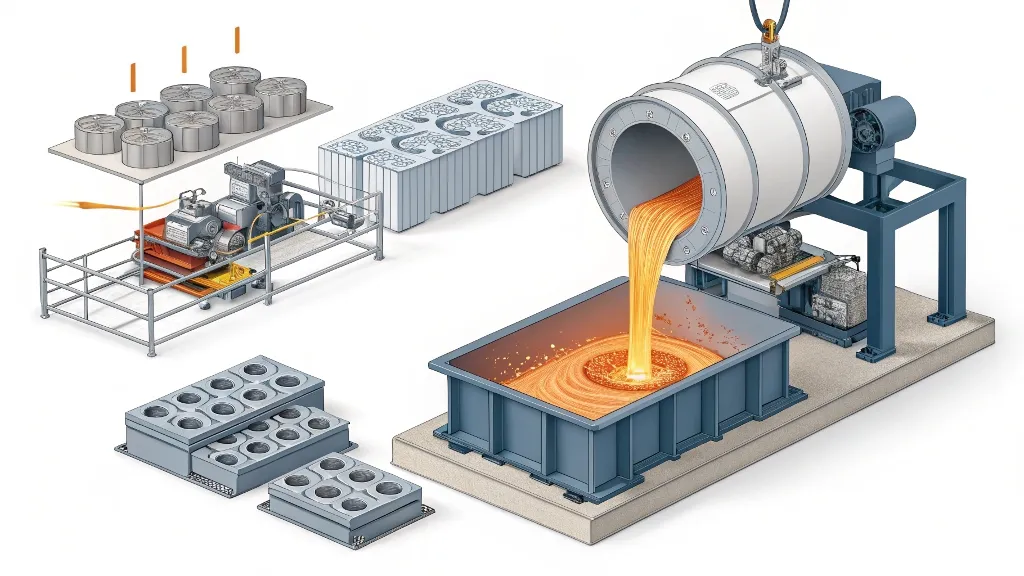
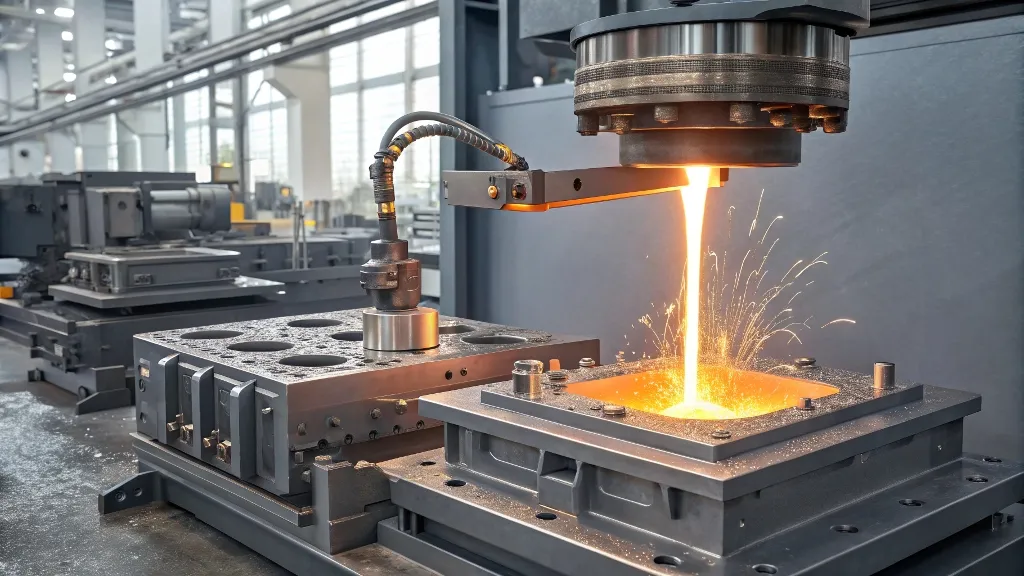
High-pressure die casting is the most prevalent technology for mass manufacture of aluminium components. It involves pressing molten aluminium into a steel mold at high pressure (usually between 1,500 to 25,000 psi).
Advantages of HPDC:
✅ Fast production cycles – Ideal for large-scale manufacturing.
✅ High precision and surface finish – Reduces post-machining requirements.
✅ Strong and lightweight parts – Perfect for automotive and aerospace industries.
✅ Efficient material usage – Minimizes waste.
Common Applications:
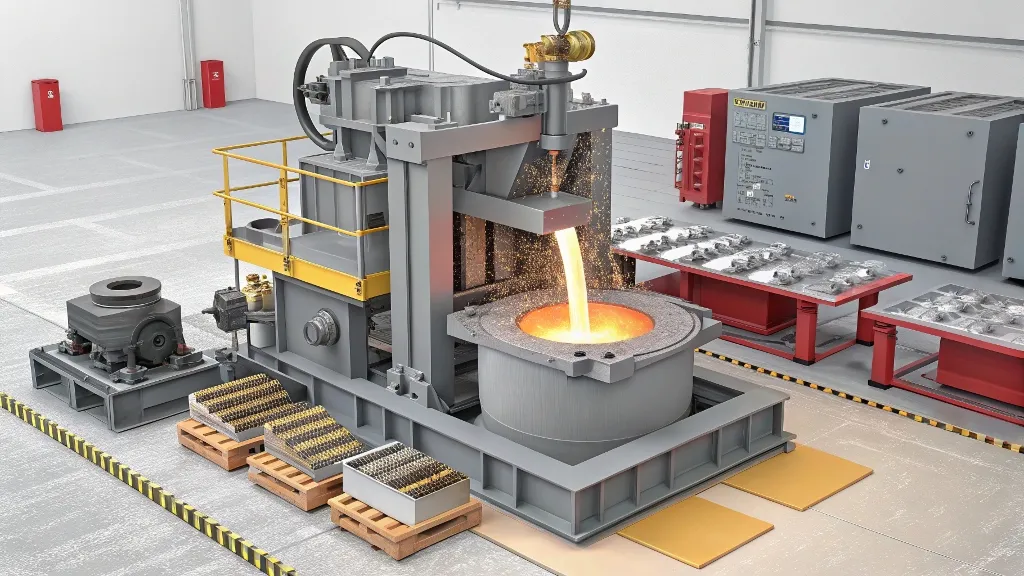
LPDC has two advantages:
✅ Better metal flow control – Reduces porosity and defects.
✅ Stronger mechanical properties – Ideal for structural components.
✅ High-quality surface finish – Reduces finishing costs.
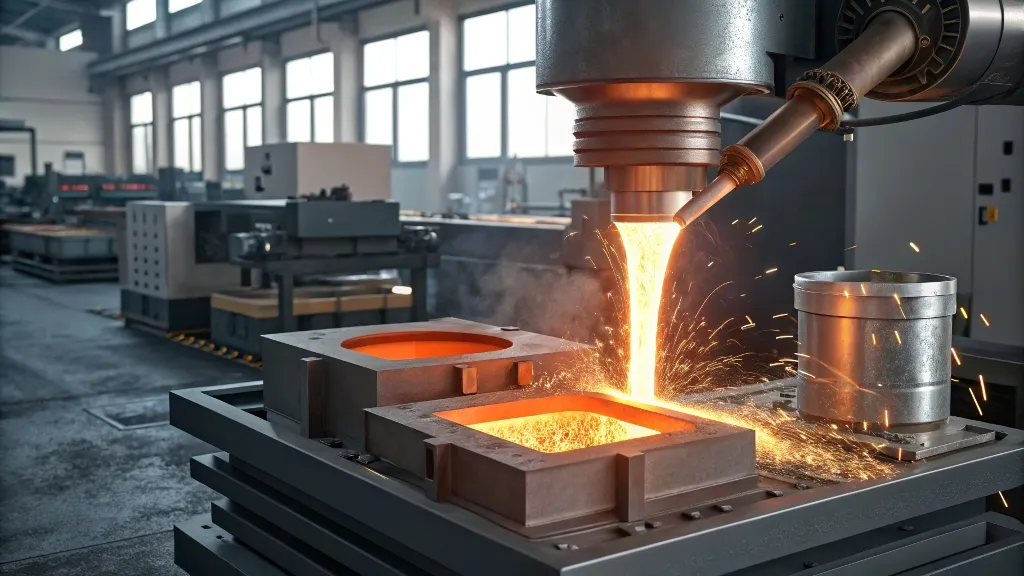
Gravity Die Casting (GDC) fills the mould using gravity rather than pressure. Either manually or via a ladle, the molten aluminium is poured into a permanent steel or iron mould.
Advantages of GDC:
✅ Lower tooling costs – Cost-effective for medium production volumes
✅ Better mechanical strength – Ideal for heavy-duty applications
✅ Thicker wall sections possible – Suitable for large components
Process choice will rely on elements including production volume, cost, strength requirements, and surface finish considerations. Here is a little analogy:

Ideal for sectors needing strength with less weight, lightweight and strong; cost-effective; lower material waste and short production cycles.
Perfect thermal and electrical conductivity makes perfect for electronic uses; also, corrosion-resistant guarantees long-lasting performance.
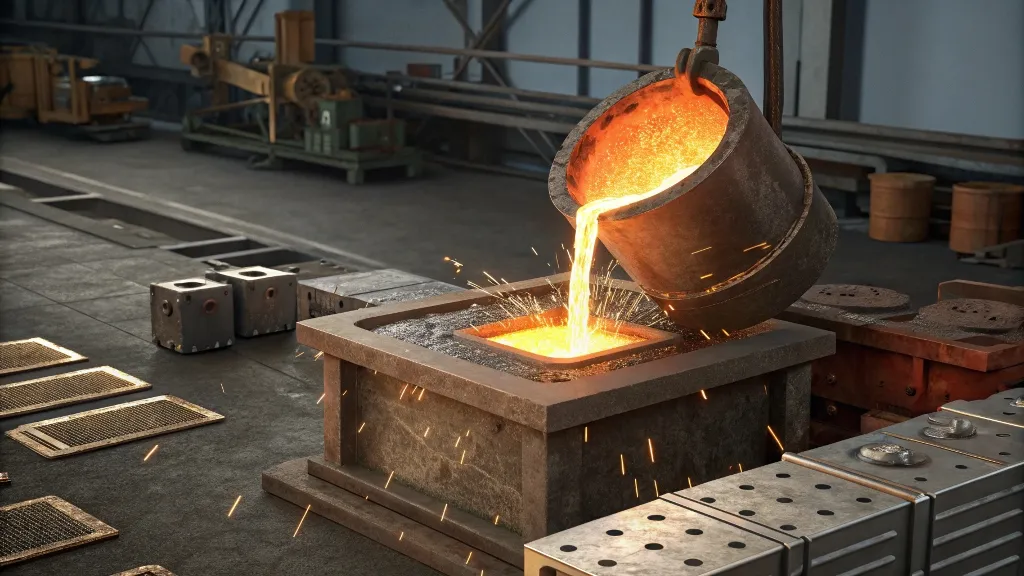
Aluminium die casting is an essential manufacturing process that provides precision, durability, and cost efficiency for various industries. Whether you need mass production (HPDC), structural strength (LPDC), or flexibility (GDC), each process has its unique advantages.
At OME VERMA Industries, we specialize in high-quality Aluminium Die Casting Solutions, ensuring top-tier performance and reliability for your business.
Looking for the best aluminium die casting solutions? Visit www.omeverma.com today!

In the world of modern manufacturing, the demand for precision, durability, and cost-effectiveness is at an all-time high. Among the various casting methods used across industries, zinc die casting stands out as a smart and strategic choice. With its ability to produce intricate, high-strength components at scale, zinc die casting offers a compelling mix of mechanical properties and production benefits.
Whether you’re in the automotive, electrical, electronics, consumer goods, or hardware industry, zinc die casting presents a reliable solution for high-volume, high-precision manufacturing needs. In this blog, we explore what makes zinc die casting such a smart choice for manufacturers and how it adds value to the production process.
Zinc die casting is a process in which molten zinc alloy is injected into a steel mold (called a die) under high pressure. Once cooled, the metal solidifies to form a precise and strong component. This method is ideal for mass production of detailed and dimensionally stable metal parts, especially where tight tolerances are critical.
Zinc alloys used in die casting—such as Zamak 3, Zamak 5, and others—are known for their excellent mechanical properties, corrosion resistance, and castability. The process is well-suited for complex designs and high-volume production, making it popular among manufacturers globally.
Zinc alloys offer outstanding tensile strength and impact resistance. Despite being a relatively low-cost material, zinc parts exhibit high durability and long service life. This makes zinc die casting ideal for products that must endure mechanical stress or wear and tear.
Zinc die casting provides extremely tight tolerances, which is essential for parts that need precise fitment or functionality. The ability to maintain accuracy across thousands of identical parts ensures consistency and reduces the need for secondary machining.
Zinc castings come out of the mold with a smooth, clean finish, often eliminating the need for extensive finishing or surface treatment. They can easily be plated, painted, or powder-coated for additional aesthetic or functional purposes.
Compared to aluminium or magnesium die casting, zinc allows for longer tool life due to its lower melting point. This reduces mold wear and extends production runs, making it cost-effective in the long term. Moreover, the high casting fluidity of zinc reduces the likelihood of defects, which means less material waste and fewer rejected parts.
Zinc die casting enables fast cycle times, which significantly boosts productivity. Manufacturers can produce large quantities of complex parts quickly and efficiently, making it ideal for industries that operate on tight deadlines or large-scale demand.
Zinc die casting supports the creation of parts with thin walls without compromising on strength or structural integrity. This capability is especially useful in applications where weight reduction or compact design is important.
Zinc alloys have good electrical and thermal conductivity, making them suitable for electrical housings, connectors, and heat-dissipating components. Their performance in these roles enhances both safety and efficiency.
Zinc is a recyclable material, and die casting processes generate minimal waste. Scraps and defective parts can be remelted and reused without losing quality, making zinc die casting a more sustainable option for environmentally conscious manufacturers.

Zinc die casting is used in a variety of sectors, including:
The adaptability of zinc die casting allows manufacturers to innovate and streamline production processes while maintaining high quality and functionality.

Zinc die casting offers a unique combination of precision, strength, speed, and cost-efficiency. Its ability to meet the needs of both small and large-scale manufacturers makes it a smart, future-proof choice for a wide range of industrial applications.
When it comes to choosing a reliable partner for die casting needs, it’s essential to work with a manufacturer that brings expertise, innovation, and quality assurance to the table.
While OME Verma Industries is best known as one of the leading aluminium die casting manufacturers in India, also offers top-notch zinc die casting solutions, ensuring durability, accuracy, and consistent performance in every product to meet diverse industrial requirements. With state-of-the-art infrastructure, skilled professionals, and a dedication to innovation, OME Verma Industries ensures superior performance and reliability in every casting project.
For manufacturers looking to elevate their production capabilities, OME Verma Industries remains a trusted partner for world-class die casting solutions.
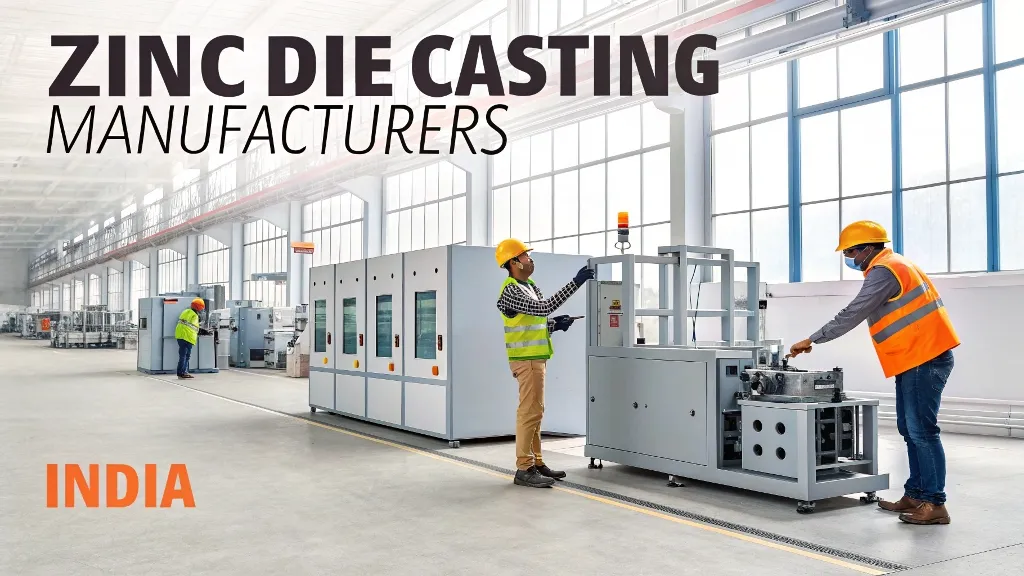
Zinc die casting is one of the most efficient manufacturing processes ever seen in the production of complex metallic parts. There are several sorts of industries where precision, durability, and cost-effectiveness are desired; therefore, this process is indeed preferred by them. Zinc Die Casting Manufacturers in India as well as other locations in India have been ahead in the long run to supply high-quality products for various sectors.
Zinc die casting is a very complex process that involves great expertise and precision. Manufacturers essentially take upon themselves the responsibility of ensuring that zinc alloy is accurately cast into molds when it comes to producing components for automotive, electronics, and other consumer goods industries. As Zinc Die Casting Manufacturers in India, we fulfill our responsibility of producing quality parts in both local and international markets.
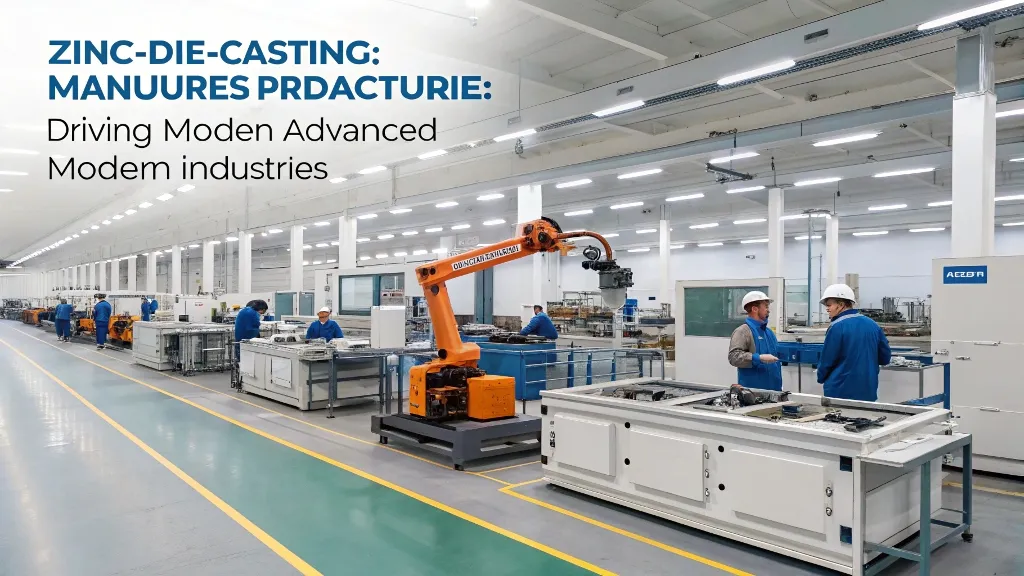
High Production Efficiency: Zinc die casting facilitates the production of huge quantities of intricate parts within a short period of time. Therefore, the production time and expenses are reduced.
Rigorous Precision: Manufacturers can achieve tight tolerances with zinc die casting, thus creating parts with complex geometries, and reducing the requirement for secondary machining.
Customization: Most manufacturers, such as Ome Verma Industries, offer customized solutions. Clients can order parts to their specifications.
Quality Assurance: There is very tight control on quality to ensure every product that is produced meets the given industry standard and client specifications.

High Production Efficiency: Zinc die casting facilitates the production of huge quantities of intricate parts within a short period of time. Therefore, the production time and expenses are reduced.
Rigorous Precision: Manufacturers can achieve tight tolerances with zinc die casting, thus creating parts with complex geometries, and reducing the requirement for secondary machining.
Customization: Most manufacturers, such as OME Verma Industries, offer customized solutions. Clients can order parts to their specifications.
Quality Assurance: There is very tight control on quality to ensure every product that is produced meets the given industry standard and client specifications.
Cost Efficiency: Zinc has a low melting point, which decreases energy consumption during the casting process. This will allow Zinc Die Casting Manufacturers in India to provide such processes at competitive prices.
Rigidity and Strength: Zinc die-casting parts are strong and resist wear well making them able to serve for many years of service condition.
Corrosion Resistance: Zinc naturally corrodes, thereby keeping the components intact for long periods of time when subjected to unfavorable conditions.
Recyclability: Zinc is entirely recyclable, thus making it the environmentally friendly alternative for manufacturers who would wish to decrease their ecological footprint.
There is a wide range of market demand for zinc die-casting parts across various industries. A manufacturer must be agile enough to switch to cater to the demand of the particular industry. OME Verma Industries has years of experience manufacturing parts for different purposes and is one of the biggest Zinc die casting suppliers in Delhi.
Automotive: Zinc die casting is used to manufacture gears, engineering components of engines, and other structural parts that are indeed robust.
Consumer Electronics: Strong and accurate small components like connectors and casings in electronics are produced using zinc die casting.
Home Appliances: Components of zinc die castings are made extensively in home appliances because of its resistance to corrosion and wear.
Telecommunications: Zinc is highly conductive, provides high durability, and therefore, it finds use in telecommunication equipment.
As producers, we ensure that every project that comes our way gets precision and quality. Our high machinery, coupled with the skilled workforce, makes it possible to meet the set requirements of our clients, and hence every component produced is of high quality.
Like any business, zinc die casting has its struggles, yet these manufacturers are involved in a continuous process of innovation with the objective of always being competitive and satisfying the needs of modern industries.
Automation: Most producers have invested their capitals in automated systems that increase the efficiency of production and raising accuracy.
Sustainable Practices: As the environment concern grows, manufacturers are slowly shifting toward more eco-friendly practices, one of which is saving on energy as a means of salvaging on waste in the production process.
Advanced Materials: There are some producers who currently test various new zinc alloys to upgrade properties, such as increased strength and better thermal conductivity.
Precision Engineering: Research and developments in mold designs and castings improve the ability to produce even more complex parts with greater precision.
Thus, at OME Verma Industries, we have made similar commitments to keep pace with these innovations and maintain effective processes that would not only be efficient and sustainable but also capable of meeting the most demanding of specifications.

The future of zinc die casting is bright, but only those manufacturers like OME Verma Industries shall be able to stamp their mark on the industry and make a difference in it. Considering that the demand for high-quality, cost-efficient, and durable components increases with every passing day, Zinc Die Casting Manufacturers in Delhi and all across India are well-positioned to meet the stakes placed before them.
Leveraging technology and a focus on sustainability, manufacturers not only improve the process of production but also mean that zinc die casting will always remain an environmentally friendly and economical manufacturing solution. Steadfast with innovation and quality, OME Verma Industries leads industries around the world in superior zinc die-cast components.
As a leading Zinc Die Casting supplier of Delhi, we look forward to a future where zinc die casting will become an integral part of modern manufacturing, making the entire industry range more efficient and precise.


Zinc die casting is one of the most efficient manufacturing processes ever seen in the production of complex metallic parts. There are several sorts of industries where precision, durability, and cost-effectiveness are desired; therefore, this process is indeed preferred by them. Zinc Die Casting Manufacturers in India as well as other locations in India have been ahead in the long run to supply high-quality products for various sectors.
Zinc die casting is a very complex process that involves great expertise and precision. Manufacturers essentially take upon themselves the responsibility of ensuring that zinc alloy is accurately cast into molds when it comes to producing components for automotive, electronics, and other consumer goods industries. As Zinc Die Casting Manufacturers in India, we fulfill our responsibility of producing quality parts in both local and international markets.

High Production Efficiency: Zinc die casting facilitates the production of huge quantities of intricate parts within a short period of time. Therefore, the production time and expenses are reduced.
Rigorous Precision: Manufacturers can achieve tight tolerances with zinc die casting, thus creating parts with complex geometries, and reducing the requirement for secondary machining.
Customization: Most manufacturers, such as Ome Verma Industries, offer customized solutions. Clients can order parts to their specifications.
Quality Assurance: There is very tight control on quality to ensure every product that is produced meets the given industry standard and client specifications.

High Production Efficiency: Zinc die casting facilitates the production of huge quantities of intricate parts within a short period of time. Therefore, the production time and expenses are reduced.
Rigorous Precision: Manufacturers can achieve tight tolerances with zinc die casting, thus creating parts with complex geometries, and reducing the requirement for secondary machining.
Customization: Most manufacturers, such as OME Verma Industries, offer customized solutions. Clients can order parts to their specifications.
Quality Assurance: There is very tight control on quality to ensure every product that is produced meets the given industry standard and client specifications.
Cost Efficiency: Zinc has a low melting point, which decreases energy consumption during the casting process. This will allow Zinc Die Casting Manufacturers in India to provide such processes at competitive prices.
Rigidity and Strength: Zinc die-casting parts are strong and resist wear well making them able to serve for many years of service condition.
Corrosion Resistance: Zinc naturally corrodes, thereby keeping the components intact for long periods of time when subjected to unfavorable conditions.
Recyclability: Zinc is entirely recyclable, thus making it the environmentally friendly alternative for manufacturers who would wish to decrease their ecological footprint.
There is a wide range of market demand for zinc die-casting parts across various industries. A manufacturer must be agile enough to switch to cater to the demand of the particular industry. OME Verma Industries has years of experience manufacturing parts for different purposes and is one of the biggest Zinc die casting suppliers in Delhi.
Automotive: Zinc die casting is used to manufacture gears, engineering components of engines, and other structural parts that are indeed robust.
Consumer Electronics: Strong and accurate small components like connectors and casings in electronics are produced using zinc die casting.
Home Appliances: Components of zinc die castings are made extensively in home appliances because of its resistance to corrosion and wear.
Telecommunications: Zinc is highly conductive, provides high durability, and therefore, it finds use in telecommunication equipment.
As producers, we ensure that every project that comes our way gets precision and quality. Our high machinery, coupled with the skilled workforce, makes it possible to meet the set requirements of our clients, and hence every component produced is of high quality.
Like any business, zinc die casting has its struggles, yet these manufacturers are involved in a continuous process of innovation with the objective of always being competitive and satisfying the needs of modern industries.
Automation: Most producers have invested their capitals in automated systems that increase the efficiency of production and raising accuracy.
Sustainable Practices: As the environment concern grows, manufacturers are slowly shifting toward more eco-friendly practices, one of which is saving on energy as a means of salvaging on waste in the production process.
Advanced Materials: There are some producers who currently test various new zinc alloys to upgrade properties, such as increased strength and better thermal conductivity.
Precision Engineering: Research and developments in mold designs and castings improve the ability to produce even more complex parts with greater precision.
Thus, at OME Verma Industries, we have made similar commitments to keep pace with these innovations and maintain effective processes that would not only be efficient and sustainable but also capable of meeting the most demanding of specifications.

The future of zinc die casting is bright, but only those manufacturers like OME Verma Industries shall be able to stamp their mark on the industry and make a difference in it. Considering that the demand for high-quality, cost-efficient, and durable components increases with every passing day, Zinc Die Casting Manufacturers in Delhi and all across India are well-positioned to meet the stakes placed before them.
Leveraging technology and a focus on sustainability, manufacturers not only improve the process of production but also mean that zinc die casting will always remain an environmentally friendly and economical manufacturing solution. Steadfast with innovation and quality, OME Verma Industries leads industries around the world in superior zinc die-cast components.
As a leading Zinc Die Casting supplier of Delhi, we look forward to a future where zinc die casting will become an integral part of modern manufacturing, making the entire industry range more efficient and precise.
